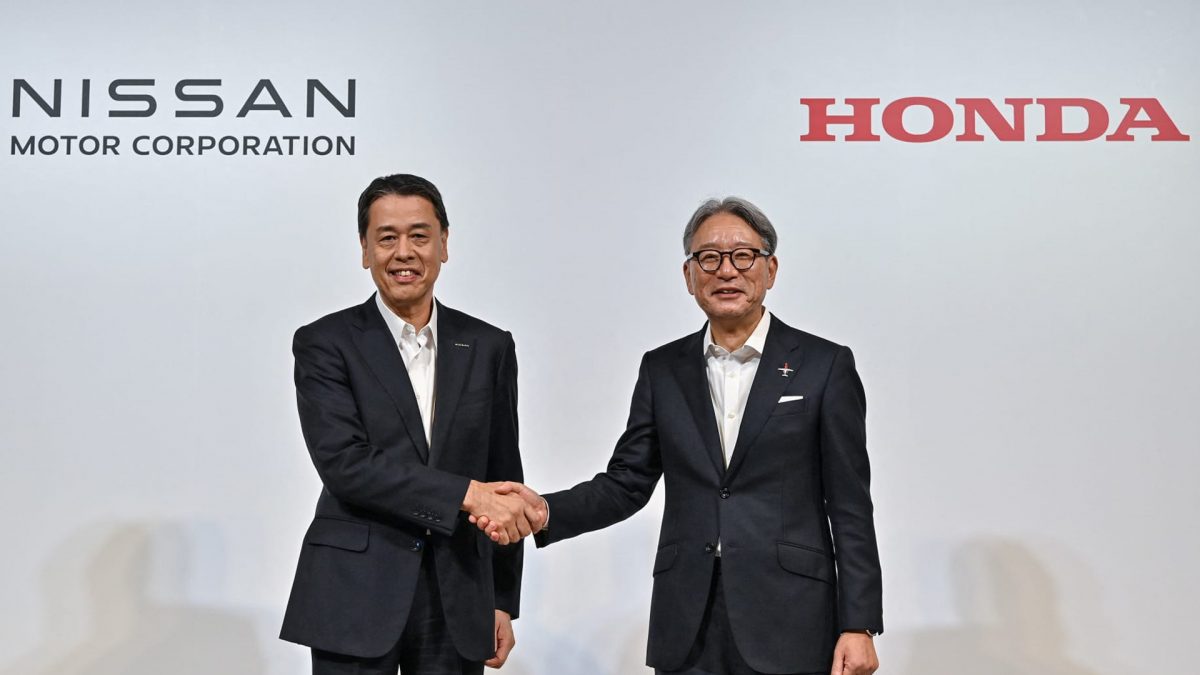Honda and Nissan, two of Japan’s largest automakers, are reportedly in talks to merge, signalling a potential shake-up in the global automotive industry. According to sources, the companies plan to sign a memorandum of understanding to establish a joint holding company that would consolidate their operations. This move is seen as a response to the growing pressures of the electric vehicle (EV) market, where competition is fierce and resources are stretched thin.
If finalised, this merger would unite the assets of Japan’s second- and third-largest carmakers, creating a more robust contender to challenge market leaders like Toyota, Tesla, and rising Chinese EV brands. Mitsubishi is also rumoured to be a possible participant in the discussions, which could further expand the alliance’s footprint in the competitive EV space.
Strength in collaboration
Honda and Nissan have already signalled their intent to collaborate in the EV sector earlier this year. The duo announced plans to work together on developing batteries, software, and other EV components, aiming to cut costs and boost efficiency. This partnership follows Toyota’s recent strategy of acquiring stakes in Subaru, Suzuki, and Mazda, highlighting a trend of consolidation among Japan’s automakers.
This potential merger reflects a broader shift in the industry, where smaller companies are combining forces to survive and thrive in a rapidly changing market. Analysts believe such partnerships could help legacy automakers stay competitive in an era dominated by innovation and technological advancements.
Focus on hybrids and carbon neutrality
Even as it explores this new partnership, Honda is doubling down on its hybrid vehicle production. The automaker has revealed plans to double its annual hybrid sales by 2030, catering to high demand outside China, particularly in North America. While Honda remains committed to achieving carbon neutrality by 2050, it anticipates hybrids will play a critical role in the transition due to their growing popularity.
Company representatives have emphasised that these moves are part of a broader strategy to adapt to evolving market needs while balancing environmental goals. The growing demand for hybrids, combined with the push for electric innovation, underscores the complex dynamics automakers are navigating today.
Policy shifts and global implications
Meanwhile, policy changes in the United States could add further complexity to the global EV market. Reports suggest the incoming administration under US President-elect Donald Trump may roll back government support for EVs and charging infrastructure, focusing instead on reducing reliance on Chinese-sourced materials. These potential changes have sparked concerns among climate scientists, who stress the importance of accelerating the shift from petrol to electric vehicles to combat global warming.
Meanwhile, a spokesperson from Nissan reached out to Firstpost with a statement, reading “The content of the reports that Honda, Nissan and MMC are considering a business integration is not based on an announcement from our company. As announced in March and August of this year, Nissan, Honda, and MMC are considering various possibilities for future collaboration including the content of the report, but no decisions have been made. If there are any updates, we will inform all stakeholders at the appropriate time.”
With shifting policies and fierce competition, Honda and Nissan’s potential merger could be a critical step in ensuring their survival and success in this evolving landscape.


)

)
)
)
)
)
)
)
)



